Is an MBA degree becoming more for the Rich in the Time of the Pandemic?
Input
Modified
An MBA Degree that is already considered costly is becoming far more extravagant for the MBA applicants
An MBA degree is considered a ‘fancy’ degree because of its delicacy and costly financial aspect. It is, however, doubtful because of the opportunity costs that arise with pursuing an MBA degree. With the global economy’s volatility starting to stabilize after the years of the Covid pandemic, this presents a dilemma for potential students. Engaging in a full-time MBA degree is costly, with only individuals who have the luxury to take time off from work can afford to take the program.
Being able to pursue an MBA degree financially is not a new issue. But with the pandemic impacting the global society and economy, the burden of funding has flourished for MBA applicants. In the current economy, it is well worth spending the money to get an MBA degree because a job with a requirement of an MBA can easily pay a six-figure salary.
According to Leila Guerra, the vice dean of London’s Imperial College Business School, the ability to fund their MBA courses has become a greater concern among the MBA applicants and students. Further, consideration of the financial aspect of an MBA degree and the opportunity that can be gained when the MBA opportunity is a hot topic of discussion due it today's uncertain times.
Though, despite the high cost, an MBA degree is considered a great pathway with many career benefits. With knowledge of jobs with higher salaries and connections gained from their graduate schools, Guerra explains that the crisis results recruiters demanding more competent individuals with an MBA degree. Even with the future becoming more unpredictable due to the pandemic, she claims it’s also a good time to apply for an MBA program and be ready for the job market when demand for MBA graduates grows.
The expensive cost of an MBA is both a burden and a challenge

An MBA course is a heavy financial investment. It requires thoughtful consideration before you decide to pursue the degree. Therefore, the pandemic raised the issue of whether the value of the course is fair. This is due to the fact that the courses are being taught online due to the closure of campuses. Discontentment among the students has led to schools promising to open and resume the teaching on-campus if the conditions are met. “Everyone including students, staff, and faculty will return back to the campus if they are fully vaccinated”, according to the associate dean of admissions at Georgetown University McDonough School of Business in Washing DC, Shelly Heinrich.
The closure of the campuses around the world sparked a petition by students with the idea of courses being too costly when the teaching occurs online. Thus a request for a refund or discount of the fees was demanded. However, with the campuses opening up and higher vaccination rates among the western countries, the movement of this petition was no longer given any attention. Heinrich added that tuition fees will stay as it is because of the opening of school after the high vaccination rate.
IESE Business School in Spain has collaborated with Caixabank to offer students a loan for both Spanish and international students and GyanDhan for Indian students. With a costly course fee, many schools are offering more support for their students with financial difficulties.
It is a growing concern as many financial institutions are ceasing their support to the students due to the pandemic’s impact on the economy. Paula Amorim, MBA admissions director at IESE, raised a concern on this matter. “This phenomenon is a widely recognized especially on those whom are coming from developing countries with weaker economy. Not able to fund their courses because of banks prohibiting or limiting the loan is becoming more prevailing.”
Various methods to outweigh the financial hardship from MBA
Financial hardship is being acknowledged by the MBA schools. From partial to full tuition fees, MBA scholarships are being presented to a diverse range of classes. The range of scholarships and financial assistance has increased over the years despite the pandemic. ESADE Business School in Barcelona has set a record for the highest number of scholarships given out last year. McDonough School of Business in Georgetown has reduced and waivered numerous application fees to those with financial hardship backgrounds.
But international students have to consider more factors during the pandemic. Imperial College Business School in London relieved the partial cost of the hotel quarantine fees that international students must partake in. Additional support has been granted, such as a fund for those in financial difficulty and pastoral care during the pandemic.
Alongside the financial assistance from the school, opportunities to earn a fair income have been introduced through the form of teaching assistantships or internships to uphold their cost of study. Various MBA schools in North America offer summer internships where the salary can be up to $9,000 dollars a month if you are from the top schools. However, Amorim from IESE, suggests that with the high competition and intensity of the MBA program, taking any sort of job away from your study can affect your grade substantially. “Working and studying in IESE at the same time is a challenge when the course requires high academic demands.”
Funds and support from the company are a common way for MBA students with bright prospects. However, schools are witnessing the decline of this support in times of crisis to reduce operating costs. Guerra from Imperial says “There is a clear evidence of showing companies lacking on the enthusiasm to sponsor students. This is for the business to survive the new reality.”
Even with the reduction of sponsorships, the opportunity to get an MBA degree is still there. Heinrich from Georgetown explains “The crisis merely reduced the opportunity. With the growing market and industry after the pandemic, there are still many employment that can be found.”
Importance of MBA in the future.
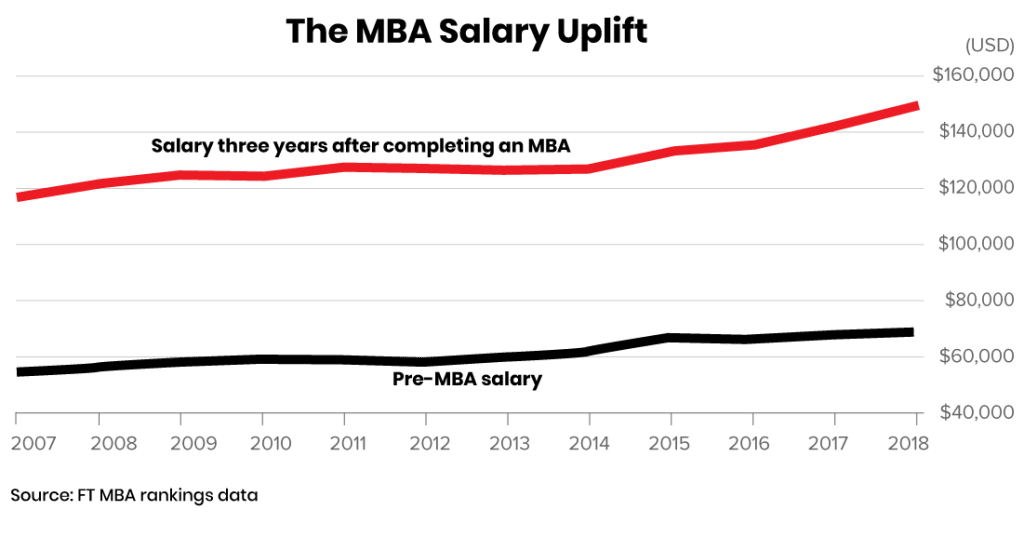
The global economy is unpredictable and is currently in a stage of upheaval. But because of the current situation, many experts emphasize the benefits of pursuing the MBA course at the moment. They claim that in the end, the return from the MBA degree will be more beneficial than the high financial fee and the years of study invested.
Many schools, including HEC, increased the number of applications and admissions last year. The director of MBA admissions at HEC Paris, Benoit Banchereau, says “Companies in the time of pandemic and also the future will demand more competent individuals. Therefore, the importance of an MBA degree from the top schools will become more advantageous.”
Founding partner of admissions agency Menlo Coaching in the Netherlands, David White, agrees and states the importance of an MBA degree’s long-term value. “MBA will become crucial to form a strong network, better skills in communication and with easier entry in fields such as management consulting, investment institutions and other lucrative areas.”
Read More: The MBA Labor Market is on the Rise
Member for
8 monthsAs one of the youngest members of the team, Tyler Hansbrough is a rising star in financial journalism. His fresh perspective and analytical approach bring a modern edge to business reporting. Whether he’s covering stock market trends or dissecting corporate earnings, his sharp insights resonate with the new generation of investors.





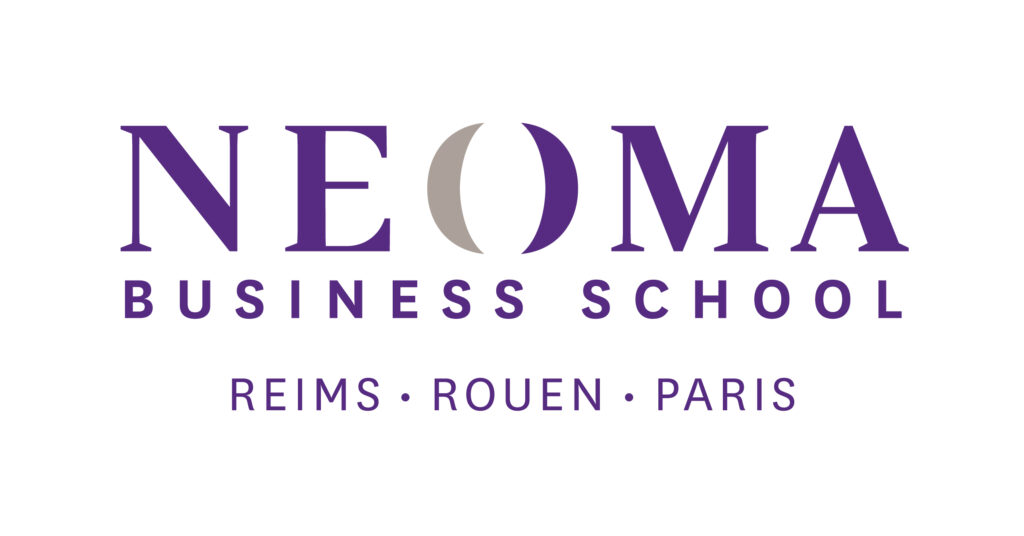


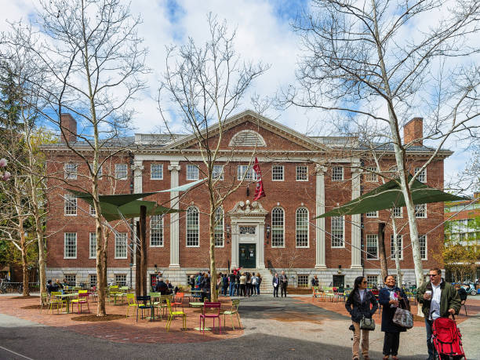






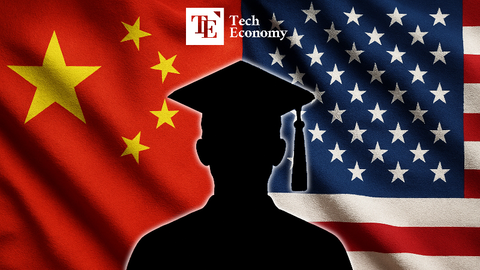
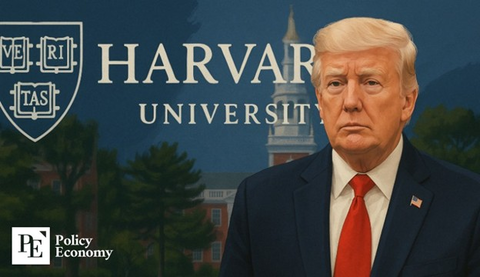





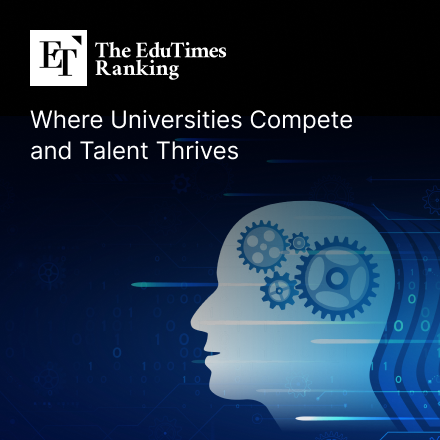










 London Business School (LBS) at the University of London helps students find their leadership styles through 360-degree surveys and personality tests. Randall Peterson, a professor of organizational behavior at the school, wrote
London Business School (LBS) at the University of London helps students find their leadership styles through 360-degree surveys and personality tests. Randall Peterson, a professor of organizational behavior at the school, wrote  The University of Virginia's Darden School of Business offers the Giving Voice to Values (GVV) curriculum which focuses on ethical implementation rather than on ethical analysis. It guides students find their own answers to the questions: “What if I were going to act on my values? What would I say and do? How could I be most effective?" Photo:
The University of Virginia's Darden School of Business offers the Giving Voice to Values (GVV) curriculum which focuses on ethical implementation rather than on ethical analysis. It guides students find their own answers to the questions: “What if I were going to act on my values? What would I say and do? How could I be most effective?" Photo:  National University of Singapore (NUS) Business School offers one of the finest business analytics programs in the world, currently ranked as
National University of Singapore (NUS) Business School offers one of the finest business analytics programs in the world, currently ranked as  Stephen M. Ross School of Business at the University of Michigan (Michigan Ross) is ranked as
Stephen M. Ross School of Business at the University of Michigan (Michigan Ross) is ranked as 
 Duke's graduate schools followed the university's decision to require vaccination. Photo:
Duke's graduate schools followed the university's decision to require vaccination. Photo:  MBAs worldwide implement similar Covid-19 policies and yet receive different responses from people. Photo:
MBAs worldwide implement similar Covid-19 policies and yet receive different responses from people. Photo:  Davidson implies the necessity of having a tangible space despite the ongoing digital innovation[/caption]
Given the dramatically growing online educational platforms, particularly due to the COVID-related circumstances, it seems questionable why the physical facilities are being developed rather than online technologies.
Davidson finds the answer in the necessity of having a tangible space despite the ongoing digital innovation, underlying that “a physical dimension, human contact, and in-person meetings are essential components to higher education and research [therefore] We still need a campus to learn, discuss, share and collaborate”.
Despite the relatively low budgets as an outcome of the extended lockdowns, business schools can afford the construction of their luxurious new buildings because of the increased tuition fee income. During the Covid pandemic, according to schools, the demands of MBA degrees have been multiplied and accordingly enlarged budgets, coming from the tuition fees, made their new building projects financially feasible.
On the other side, the funds from affluent donors take large parts of the budget for the constructions. For instance, the Tepper School of Business has collected cash over a decade for its $201m campus facilities from 1,250 alumni and wealthy entrepreneur, David Tepper.
The construction of technologically sophisticated buildings is to meet the MBA students’ needs. For instance, IE Tower provides students with learning areas set up with technological tools that are designed to give both in-person and digital lectures. The president of IE University, Santiago Iñiguez, ensures that IE Tower will enrich the students’ experience not only within the institution but also outside of it.
This way of digitally connecting students is aimed to combine the tangible and digital learning experiences, simultaneously having some students attended in a physical classroom and others in a digital space, as well as asynchronous programs to support individual work.
Recently-built facilities allow interdisciplinary ways of learning
The new campus of Columbia is currently in use for improving partnerships with the school, the New York tech community, in the same university. This reflects business schools’ purpose in opening up new teaching areas that is to stress collaborations between the schools of different disciplines.
The dean of Columbia Business School, Costis Maaglaras, emphasizes that “Modern business is predicated on the expanded adoption of technology, data, and advanced analytics alongside the fundamentals of traditional business education”.
For the same reason, the new facilities of the Tepper School of Business will allow the active collaborations open to the other six Carnegie Mellon colleges and schools. Former dean of the Tepper, Robert Dammon, who was one of the figures leading the innovation of school buildings, highlights “Today’s business leaders must address challenges with creative and interdisciplinary approaches”.
Behind the popularity of new buildings, there are also the demands for eco-friendly facilities that can reduce carbon impact caused by business schools. Emlyon’s new facilities with a 9,000 square meter landscape, for instance, which will be built on its currently brownfield land, are expected to contribute to restoring the environment and biological diversity.
Furthermore, these environmentally sustainable buildings will achieve the optimization of the energy consumption of the campus. Yet, the ultimate goal of schools is to foster the enrolment of new students and subsequently to increase tuition fee income.
Read More:
Davidson implies the necessity of having a tangible space despite the ongoing digital innovation[/caption]
Given the dramatically growing online educational platforms, particularly due to the COVID-related circumstances, it seems questionable why the physical facilities are being developed rather than online technologies.
Davidson finds the answer in the necessity of having a tangible space despite the ongoing digital innovation, underlying that “a physical dimension, human contact, and in-person meetings are essential components to higher education and research [therefore] We still need a campus to learn, discuss, share and collaborate”.
Despite the relatively low budgets as an outcome of the extended lockdowns, business schools can afford the construction of their luxurious new buildings because of the increased tuition fee income. During the Covid pandemic, according to schools, the demands of MBA degrees have been multiplied and accordingly enlarged budgets, coming from the tuition fees, made their new building projects financially feasible.
On the other side, the funds from affluent donors take large parts of the budget for the constructions. For instance, the Tepper School of Business has collected cash over a decade for its $201m campus facilities from 1,250 alumni and wealthy entrepreneur, David Tepper.
The construction of technologically sophisticated buildings is to meet the MBA students’ needs. For instance, IE Tower provides students with learning areas set up with technological tools that are designed to give both in-person and digital lectures. The president of IE University, Santiago Iñiguez, ensures that IE Tower will enrich the students’ experience not only within the institution but also outside of it.
This way of digitally connecting students is aimed to combine the tangible and digital learning experiences, simultaneously having some students attended in a physical classroom and others in a digital space, as well as asynchronous programs to support individual work.
Recently-built facilities allow interdisciplinary ways of learning
The new campus of Columbia is currently in use for improving partnerships with the school, the New York tech community, in the same university. This reflects business schools’ purpose in opening up new teaching areas that is to stress collaborations between the schools of different disciplines.
The dean of Columbia Business School, Costis Maaglaras, emphasizes that “Modern business is predicated on the expanded adoption of technology, data, and advanced analytics alongside the fundamentals of traditional business education”.
For the same reason, the new facilities of the Tepper School of Business will allow the active collaborations open to the other six Carnegie Mellon colleges and schools. Former dean of the Tepper, Robert Dammon, who was one of the figures leading the innovation of school buildings, highlights “Today’s business leaders must address challenges with creative and interdisciplinary approaches”.
Behind the popularity of new buildings, there are also the demands for eco-friendly facilities that can reduce carbon impact caused by business schools. Emlyon’s new facilities with a 9,000 square meter landscape, for instance, which will be built on its currently brownfield land, are expected to contribute to restoring the environment and biological diversity.
Furthermore, these environmentally sustainable buildings will achieve the optimization of the energy consumption of the campus. Yet, the ultimate goal of schools is to foster the enrolment of new students and subsequently to increase tuition fee income.
Read More: